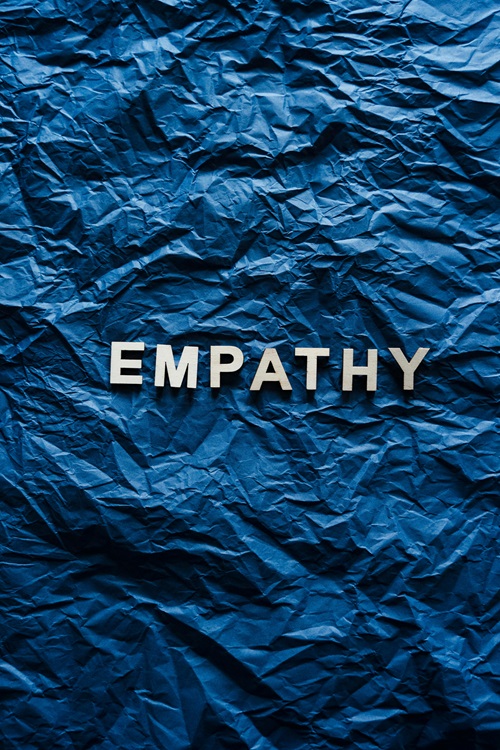So last week I wrote “It’s Not About the Nail – really it isn’t: how reflective listening can help you feel like you’re not playing ball by yourself.” This week I want to continue and use the same situation to give empathy to both people in this video.
First: let’s backtrack and start with the basics: what is empathy? It has been a popularized word that people have been throwing around left and right – but what exactly is it?
As a former business consultant I will give you the classic consultant answer: it depends, because it really depends who you ask and their relationship with empathy. However I am going to level set by sharing the definition by Merriam and Webster dictionary:
- The action of understanding, being aware of, being sensitive to, and vicariously experiencing the feelings, thoughts, and experience of another
- The act of imagining one’s ideas, feelings, or attitudes as fully inhabiting something observed (such as a work of art or natural occurrence) : the imaginative projection of a subjective state into an object so that the object appears to be infused with it

While I agree with the understanding/ being aware of/ being sensitive to another in the definition provided, as a student and practitioner of nonviolent communication*, I want to amend and define empathy as the articulation of what the other person or people is feeling and needing, and oftentimes this can be a guess. So in a way: empathy is the act of guessing feelings and needs of one person by another.
While guessing can seem pretty speculative and non accurate, the reality is that we cannot truly know what another person is experiencing because we are not that person. Because we are not that person, then it’s better to make guesses than to make assumptions – because we all know what happens when we make assumptions.
So let me give some empathy to the 2 people in this video:
Woman: It’s just there is all this pressure, you know. Sometimes it feels like it’s right up on me…
- Empathy guess: wow you are feeling pretty terrible! Not only are you feeling terrible emotionally, it has an impact on your life: you can’t sleep and your clothes are getting ruined by all the snagging
Man: Yeah…you do have a nail on the head…
- Empathy guess: ummm…it’s pretty obvious to you because you can literally see the nail in her head. You probably want to help her because you care about her and want to help.
Woman: It’s not about the nail
- Empathy guess: you’re getting mad that he is not listening to you. You maybe don’t trust that he totally heard you and truly know the difficulties that you are experiencing
Man: Are you sure? Because, I bet, if we get it out of there –
- Empathy guess: you’re probably surprised that she doesn’t think that the nail is the issue. In fact it is so apparent to you that you want to let her know (again) and help her out, because you care about her getting some relief from all the difficulties she is facing.
Woman: Stop trying to fix it!
- Empathy guess: wow he really doesn’t understand what you are going through and now you’re more mad that he is trying to “fix” you when all you need is just someone to listen to your issues for a bit.
These empathy guesses allow me to understand what each person is possibly going through instead of thinking that I know what the other person is going through and needs and the best solution to what they are facing.
When we try to “fix” and find solutions for the other person in a way it is disempowering to the other person – we do not believe that the other has enough knowledge or experience to deal with the situation or the capabilities to handle what is happening.
I truly believe that each person has their own power, capabilities, and knowledge to find what works for themself. If I were to give them a solution then it shortcuts what they need to learn so when I try to “fix” something then perhaps it is a way for me not to deal with my own frustration and discomfort of an awkward or unhappy situation.
That is why as a coach I do not give advice or solutions. I give people frameworks, exercises, and perspectives so they can make choices from their own authentic knowing.
* Nonviolent Communication: A Language of Life by Marshall B. Rosenberg, Arun Gandhi (Foreword)